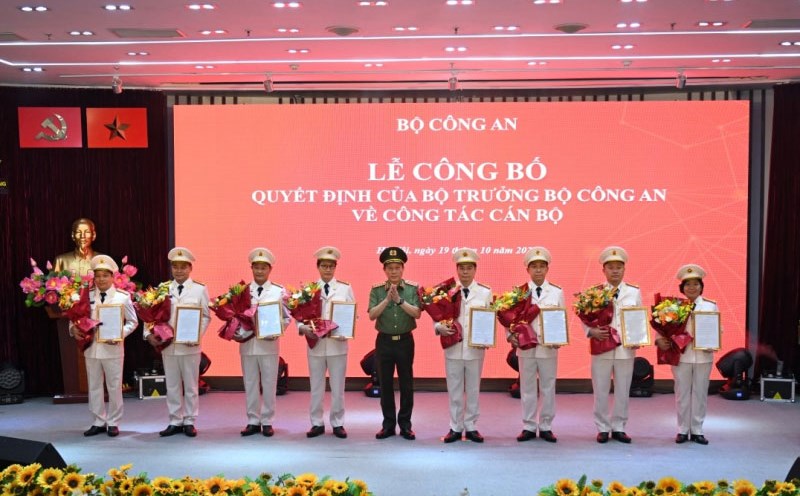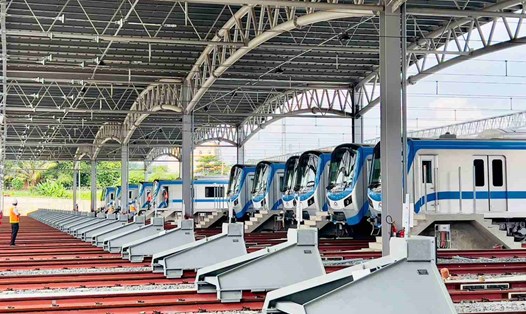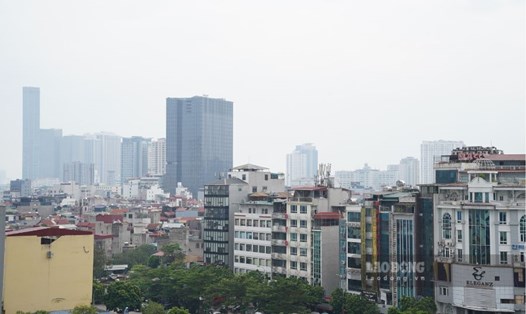Huge capital for Metro project
According to the project to develop the Metro system of Ho Chi Minh City, the city aims to build about 183km of metro lines (taking on 30-40% of the public passenger transport market share) by 2035 and expand another 168km (taking on 40-50% of the public passenger transport market share) by 2045. By 2060, the metro network will be completed with a total length of more than 510km (taking on 50-60% of the public passenger transport market share).
To achieve this goal, Ho Chi Minh City needs about VND835,738 billion (equivalent to USD34.84 billion) in the period up to 2035. The period 2036-2045 requires an additional VND627,620 billion (USD26.17 billion), and from 2046 to 2060, VND973,714 billion (USD40.61 billion).
The city plans to mobilize all resources from the State budget and various forms of investment, in which the State budget plays a leading role. Additional sources include increased budget revenue, urban development following the TOD model (urban development integrated with public transport), public investment, bond issuance and support from the central budget.
According to the plan, Ho Chi Minh City will mobilize VND155,000 billion through the issuance of local government bonds, of which VND10,000 to VND30,000 billion will be reserved each year from 2025 to 2035 to develop the metro system. Currently, Ho Chi Minh City's outstanding debt by the end of 2023 is VND26,729 billion. With the regulation on the maximum public debt limit of 120% of local budget revenue, the city still ensures to be within the financial safety limit when implementing the borrowing plan through bond issuance.
Metro bond success
According to Dr. Tran Quang Thang - Director of the Institute of Economics and Management of Ho Chi Minh City, local government bonds are a popular capital mobilization tool that many countries have successfully applied to finance large infrastructure projects, including public transport systems such as metro. Major cities such as New York, London or Tokyo have used bonds to develop metro systems.
Ho Chi Minh City is the largest economic center in Vietnam, with strong development potential. Issuing bonds based on the city's financial stability and ability to collect regular budget revenues can attract residents and investors.
"If the metro bond interest rate is competitive, equal to or higher than the government bond interest rate, the possibility of people buying bonds is very high, even though the profit from this channel may be lower than other investment channels," said Mr. Thang.
On October 3, at the 12th Congress of the Vietnam Fatherland Front in Ho Chi Minh City, Chairman of the Ho Chi Minh City People's Committee Phan Van Mai expressed his wish that Ho Chi Minh City residents join hands to contribute to the implementation of these important projects through the purchase of bonds.
“Instead of depositing money in the bank with possibly higher interest rates, buying urban railway bonds may have lower interest rates, but that is how we contribute to the city's development,” Mr. Phan Van Mai shared.
Dr. Tran Quang Thang said that to ensure success in raising capital from bonds, Ho Chi Minh City needs to develop a clear and transparent capital management strategy. The city needs to have a detailed plan on capital mobilization and use, ensuring no waste. People will feel secure investing if the city commits to repaying capital and has measures to ensure it.
In addition, Ho Chi Minh City also needs to introduce preferential policies to attract investors, such as reducing taxes for bond buyers or increasing interest rates in certain periods. Clear communication about the benefits that people receive from buying bonds is also an important factor.
The city must ensure that the metro development roadmap is implemented on schedule, avoiding delays and using funds efficiently. If the project is delayed, this could negatively impact investor confidence.










